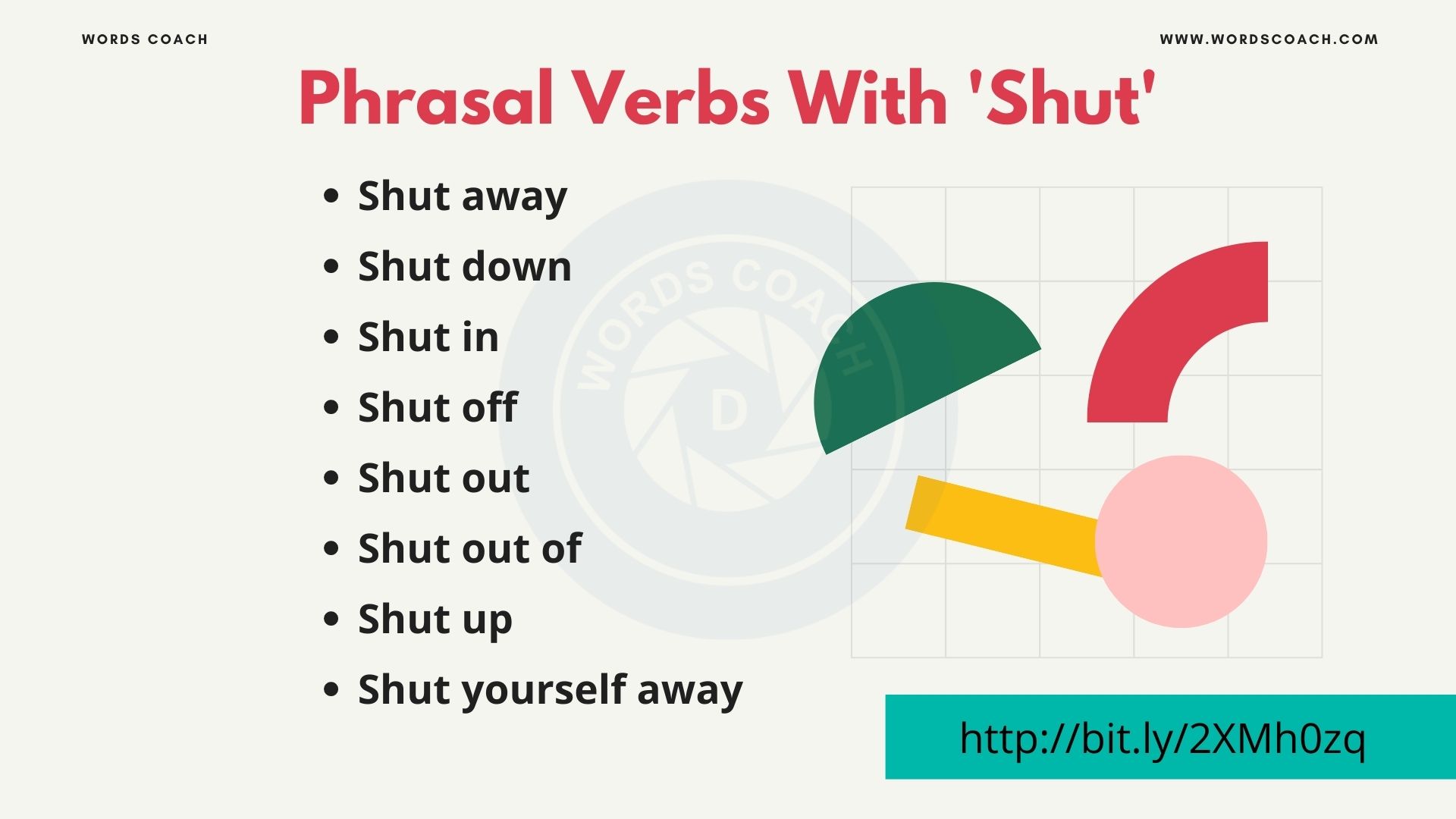The Phrase 'Shut Up Bitch': Unpacking Its Cultural Journey
In the vast and ever-evolving landscape of digital communication, certain phrases transcend their literal meaning to become cultural phenomena, shaping memes, reactions, and online discourse. One such phrase, undeniably controversial yet undeniably prevalent, is **"shut up bitch."** While its directness and offensive nature are immediately apparent, its journey through pop culture, from wrestling arenas to internet forums, offers a fascinating, albeit uncomfortable, glimpse into how language is adopted, repurposed, and amplified in the digital age.
This article aims to dissect the phrase "shut up bitch," exploring its linguistic components, tracing its origins in online slang, and examining its widespread adoption in various forms of media, particularly memes, GIFs, and sound effects. We will delve into its association with prominent figures like Dwayne "The Rock" Johnson, analyze its presence in music and other controversial contexts, and critically discuss the broader implications of such language in our daily interactions. Our goal is to provide a comprehensive, analytical perspective on this pervasive phrase, understanding its cultural footprint without endorsing its use.
Table of Contents
- Deconstructing the Phrase: "Shut Up" and "Bitch"
- The Digital Genesis: From Slang to Viral Sensation
- The Rock's Impact: A Case Study in Popularization
- Beyond The Rock: Other Cultural Touchpoints
- The "Shut Up Bitch" Sound Effect and Its Applications
- Understanding the Context: When is it Used?
- The Societal Implications: Why Does it Resonate?
- Navigating Offensive Language in Digital Spaces
Deconstructing the Phrase: "Shut Up" and "Bitch"
To fully understand the cultural weight of "shut up bitch," it's essential to break down its constituent parts. Each word carries its own history and connotations, which combine to form a phrase that is often confrontational and dismissive.
- Waifumiia Leaked
- Did Kate Hudson Get A Boob Job
- Keo Dancing With The Stars
- Michael J Fox Brother
- Frannie And Matt Still Together
The Etymology of "Shut"
The word "shut" is rooted in Old English "scyttan," meaning "to close, fasten, lock." Its primary definitions, as outlined by various dictionaries like Webster's New World College Dictionary and the Oxford Advanced Learner's Dictionary, revolve around the act of closing or obstructing:
- To move into position to close an opening (e.g., "shut the door").
- To cause to stop operating or being in service (e.g., "the factory shut down").
- To fasten with a lock, catch, or latch.
- To block entrance to or exit from.
- To confine in a closed space (e.g., "shut them in a cage").
- To exclude from a closed space.
In the context of "shut up," the verb takes on an imperative, commanding someone to cease speaking. It implies a desire to silence, to close off the source of noise or unwanted communication. This core meaning of cessation and obstruction is crucial to the phrase's aggressive nature.
The Nuances of "Bitch"
The term "bitch" has a complex and often derogatory history. Originally referring to a female dog, its application to humans, particularly women, evolved to denote a malicious, spiteful, or unpleasant person. Over time, its usage expanded to encompass a broader range of negative connotations, sometimes used to describe men perceived as weak or subservient, or as a general expletive to express frustration or anger. While some subcultures have attempted to reclaim the word, using it as a term of empowerment or camaraderie, its predominant usage, especially when combined with "shut up," remains highly offensive and demeaning.
- Briahna Joy Gray
- Jennifer Aniston Photoshoot
- Is Katie Ledecky Trans
- Amouranth Xxx
- Hallmark Movies Based On Books
When "shut up" is paired with "bitch," the combination intensifies the dismissive and insulting tone. It's not merely a command to be silent, but a contemptuous rejection of the speaker, often implying that their words are worthless or annoying, and that they themselves are contemptible. This dual layer of silencing and demeaning makes "shut up bitch" a particularly harsh and offensive phrase.
The Digital Genesis: From Slang to Viral Sensation
While the individual words "shut up" and "bitch" have long existed in the English lexicon, their specific combination and widespread virality in the form of "shut up bitch" are largely products of the digital age. The internet, with its rapid dissemination of slang and memes, provided the perfect incubator for this phrase to evolve from niche usage to mainstream recognition.
"SYBAU": An Early Internet Precursor
Before "shut up bitch" gained its full notoriety, an acronym served as an early indicator of this type of aggressive online shorthand: "SYBAU." As defined on Urban Dictionary as early as 2003, "SYBAU" stands for "shut your bitch ass up." This demonstrates that the sentiment, if not the exact phrasing, was already circulating in early online communities. The existence of such an acronym highlights a desire for concise, impactful, and often confrontational communication in the nascent days of internet forums and chat rooms. It laid some groundwork for the later adoption and popularization of "shut up bitch" as a quick, forceful retort.
Gifs, Sound Effects, and Viral Spread
The phrase truly exploded with the advent of multimedia sharing platforms. The ability to create and share "shut up bitch" GIFs and sound effects transformed it from mere text into a dynamic, expressive tool for online reactions. Platforms like Tenor and Vlipsy became repositories for these viral snippets, allowing users to easily incorporate them into conversations, memes, and social media expressions. The visual and auditory elements added a new layer of impact, often leveraging specific pop culture moments or celebrity reactions to amplify the phrase's intended effect. The ease of sharing these short, punchy clips contributed significantly to the phrase's pervasive spread across various digital ecosystems.
The Rock's Impact: A Case Study in Popularization
No discussion of "shut up bitch" in pop culture would be complete without acknowledging the significant role played by Dwayne "The Rock" Johnson. His charismatic persona and memorable wrestling promos have cemented the phrase in the minds of millions, turning it into a recognizable "forum weapon" and a staple of online reactions.
Biography of Dwayne "The Rock" Johnson
Dwayne "The Rock" Johnson is a global icon, renowned for his multifaceted career spanning professional wrestling, acting, and entrepreneurship. Born into a wrestling family, he rose to superstardom in the WWE (World Wrestling Entertainment) during the late 1990s and early 2000s, captivating audiences with his electrifying promos, athletic prowess, and signature catchphrases. His transition to Hollywood has been equally successful, making him one of the highest-paid and most recognizable actors in the world. Beyond his entertainment career, Johnson is also known for his motivational outlook, often sharing messages of hard work and determination, encapsulated by lines like "It's about drive, it's about power, we stay hungry, we devour, put in the work, put in the hours and take what's ours." This broader persona often stands in stark contrast to the directness of his more confrontational wrestling lines, highlighting the complexity of his public image.
| Attribute | Detail |
|---|---|
| Full Name | Dwayne Douglas Johnson |
| Known As | The Rock |
| Date of Birth | May 2, 1972 |
| Place of Birth | Hayward, California, U.S. |
| Nationality | American |
| Occupation | Actor, Producer, Businessman, Former Professional Wrestler |
| Notable Affiliation | WWE |
His Signature Delivery and Meme Culture
During his wrestling career, The Rock was known for his ability to "own" his opponents on the microphone. One particularly famous instance involves his verbal sparring with Triple H, where his delivery of "shut up bitch" became iconic. The perfect "shut up bitch" The Rock mad animated GIF, along with variations like "the perfect The Rock shut animated GIF," became highly sought after for conversations and online reactions. These clips capture the intensity and dismissiveness of his character, allowing users to convey a similar sentiment in their own digital interactions. The phrase, delivered with The Rock's unique blend of arrogance and charisma, transcended its original context to become a widely recognized meme, often used humorously or to express a strong desire for someone to stop talking.
Beyond The Rock: Other Cultural Touchpoints
While The Rock significantly popularized the phrase, its presence extends to other, often more controversial, areas of pop culture. These instances further illustrate how "shut up bitch" permeates various forms of media, reflecting different social contexts and intentions.
Couri Leuschner and Controversial Usage
The phrase "shut up bitch" has also been associated with figures like Couri Leuschner, particularly in contexts that highlight its problematic and misogynistic undertones. The data suggests its usage was "mainly by pimps like him," indicating a connection to derogatory and exploitative language. This association underscores the darker side of the phrase, where it is used not for comedic effect or as a wrestling taunt, but to assert dominance, demean, and silence individuals, particularly women, in a deeply offensive manner. This context is a stark reminder of the real-world harm and disrespect that such language can perpetuate.
Musical References: Lil' Kim and Others
The phrase also appears in music lyrics, reflecting its presence in broader street and hip-hop culture. For instance, the data references a line from Lil' Kim: "I heard she mad rich, I heard she dead broke / I heard she sniffin' coke (shut up, bitch) / Ayo, Kim can spit, man, she don't write her shit / Nah, Biggie." In this context, "shut up, bitch" is used as a dismissive interjection, shutting down gossip or criticism. It serves as a rhetorical device to assert confidence, deflect rumors, or challenge detractors. While artists often use such language to reflect real-world dialogue or for artistic expression, its inclusion in popular music further normalizes its presence in everyday vocabulary, even as its offensive nature remains.
Furthermore, the phrase can be found in various viral video contexts, often as a reaction or commentary. While the specific "viral video year 2025 origin tiktok region united states tags the weeknd, abel, hurry up tomorrow, the weeknd acting, bad acting, the weeknd" reference points to a potential future or niche meme, it exemplifies how "shut up bitch" can be repurposed in copypastas or as a "forum weapon" to express strong, often critical, reactions to performances or situations, regardless of the original speaker's intent.
The "Shut Up Bitch" Sound Effect and Its Applications
The digital realm's ability to isolate and share specific audio clips has given "shut up bitch" a life of its own as a standalone sound effect. This phenomenon is a testament to the phrase's impact and versatility in online communication.
From WWE Arenas to Online Memes
The "shut up bitch sound effect" is freely available and widely used, primarily stemming from The Rock's WWE promos. These sound bites capture the raw energy and confrontational style of professional wrestling, allowing users to inject a similar level of dramatic flair into their own digital interactions. The sound effect is often employed in a humorous or ironic context, especially within meme culture, where the intent is to elicit laughter or a strong reaction rather than to genuinely offend. However, its origin in a context of verbal aggression means that even when used humorously, the underlying harshness of the phrase remains.
Reactions, Memes, and Social Media Expressions
The sound effect, along with its GIF counterparts, is perfect for reactions, memes, and social media expressions. It serves as a quick, impactful way to convey exasperation, disbelief, or a desire for someone to cease speaking. In online communities, where rapid-fire communication is common, such pre-packaged reactions are invaluable. They allow users to participate in conversations with minimal effort while still conveying a strong sentiment. The ubiquity of these clips on platforms like TikTok and various meme sites underscores how deeply embedded "shut up bitch" has become in the fabric of internet culture, used across a spectrum from genuine frustration to satirical commentary.
Understanding the Context: When is it Used?
The usage of "shut up bitch" varies significantly depending on the context, intent, and audience. While universally recognized as offensive, its deployment can range from outright aggression to ironic humor.
- Direct Confrontation: In its most literal and aggressive form, the phrase is used to silence someone forcefully and insultingly. This is its most harmful application, often intended to demean and assert dominance.
- Humorous/Ironic Memes: As seen with The Rock's usage, the phrase is often repurposed in memes and GIFs for comedic effect. Here, the intent is usually to be funny or relatable, often by exaggerating a reaction or a situation. The humor often derives from the sheer audacity or over-the-top nature of the phrase.
- Online Reactions: In forums, comment sections, and social media, "shut up bitch" can be a quick, visceral reaction to content deemed annoying, nonsensical, or infuriating. It acts as a digital exclamation mark, expressing strong disapproval.
- Artistic Expression: In music or other forms of media, the phrase might be used to reflect real-world dialogue, portray a character's personality, or serve as a provocative element in a narrative.
- Subcultural Slang: Within certain online communities or subcultures, the phrase might be used with a different, often less severe, connotation, similar to how other expletives are used among close friends. However, this internal understanding rarely translates to a broader audience, where it remains offensive.
It is crucial to differentiate between these contexts, though the underlying offensive nature of the phrase means that even in "humorous" contexts, it carries a potential for harm and misunderstanding, especially when viewed by those outside the intended audience or subculture.
The Societal Implications: Why Does it Resonate?
The persistent presence of "shut up bitch" in popular culture, despite its offensive nature, raises important questions about language, power, and societal norms. Why does such a phrase resonate, and what does its widespread use say about our communication habits?
One reason for its resonance lies in its raw, unfiltered directness. In an age of information overload, short, impactful phrases cut through the noise. "Shut up bitch" is unambiguous in its intent to silence and dismiss. This bluntness can be appealing in contexts where frustration is high or where a quick, definitive retort is desired. Furthermore, the association with powerful figures like The Rock lends it a certain rebellious or "alpha" quality in some subcultures, making it seem edgy or cool to those who admire such personas.
However, its prevalence also reflects a broader issue of desensitization to offensive language in digital spaces. The anonymity and distance afforded by online interactions often lower inhibitions, leading to the casual use of words that would be unacceptable in face-to-face communication. This normalization can have detrimental effects, eroding respectful discourse and contributing to a more aggressive online environment. The phrase, particularly the inclusion of "bitch," perpetuates misogynistic undertones and can contribute to a culture where demeaning language, especially towards women, is seen as acceptable or even humorous.
Ultimately, the phrase resonates because it taps into primal emotions of anger, frustration, and the desire for control, while its digital packaging makes it easily shareable and adaptable. Yet, this resonance comes at a cost, contributing to a less inclusive and more hostile communication landscape.
Navigating Offensive Language in Digital Spaces
The analysis of "shut up bitch" serves as a microcosm for the broader challenges of navigating offensive language in digital spaces. While understanding its cultural journey is important, it is equally crucial to address its impact and promote more responsible communication.
For content creators and platforms, the challenge lies in balancing freedom of expression with the
- Keely Shaye Smith Model Photos
- Christopher Reeves Kids
- Where Are The Property Brothers Filmed
- Is John Hamm Married
- Pauletta Washington Net Worth

7 Times You Should Probably Shut Up | Rachel Beohm

Phrasal Verbs With 'Shut' - Word Coach

Google Picture War RELOADED - Page 472 - Forum Games! - Kerbal Space